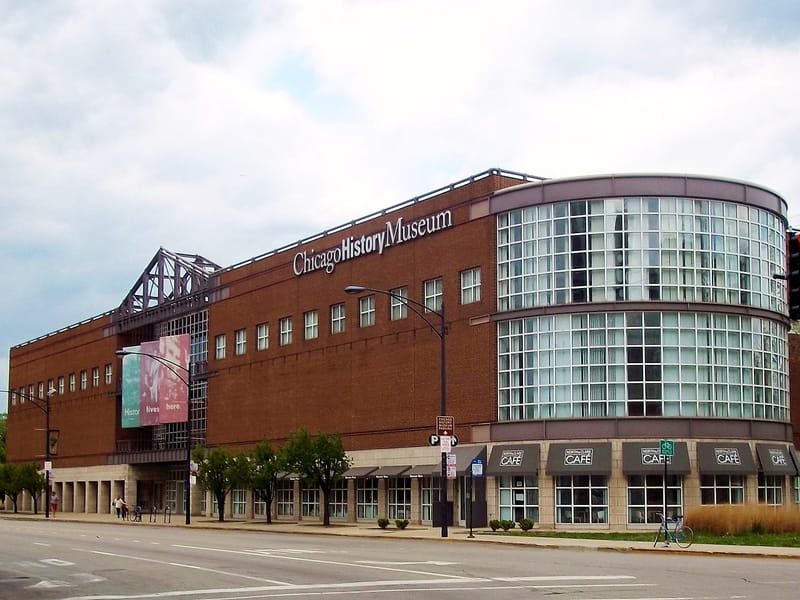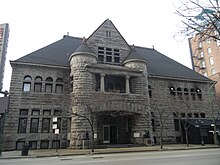
Chicago History Museum is the museum of the Chicago Historical Society (CHS). The CHS was founded in 1856 to study and interpret Chicago's history. The museum has been located in Lincoln Park since the 1930s at 1601 North Clark Street at the intersection of North Avenue in the Old Town Triangle neighborhood. The CHS adopted the name, Chicago History Museum, in September 2006 for its public presence.
Much of the Chicago Historical Society's first collection was destroyed in the Great Chicago Fire in 1871, but the museum rose from the ashes like the city. Among its many documents which were lost in the fire was Abraham Lincoln's final draft of the Emancipation Proclamation. (This draft had been donated by Lincoln to nurse Mary Livermore for her to raise funds to build Chicago's Civil War Soldiers' Home.) After the fire, the Society began collecting new materials, which were stored in a building owned by J. Young Scammon, a prominent lawyer and member of the society. However, the building and new collection were again destroyed by fire in 1874. The Chicago Historical Society built a fireproof building on its pre-1871 building-site at 632 North Dearborn Street. The replacement building opened in 1896 and housed the society for thirty-six years. The building was later added to the National Register of Historic Places as the Old Chicago Historical Society Building.
1896–1932 home of the Chicago Historical Society.
Charles F. Gunther, a prominent Chicago collector, donated some items to the historical society. In 1920, the society purchased the remainder of the large history collection from his estate, with the intention of changing its focus from only a research institution into a public museum. Many of the items in Gunther's collection, in addition to Chicago, were related to Abraham Lincoln[a] and the American Civil War. These include Lincoln's deathbed, several other pieces of furniture from the room where he died in the Petersen House, and clothing that he and his wife Mary Todd Lincoln allegedly wore the evening of his assassination. The collection also contains the table on which General Robert E. Lee signed his 1865 surrender to General Ulysses S. Grant, an official act that ended the American Civil War, at the McLean House in Appomattox, Virginia.



